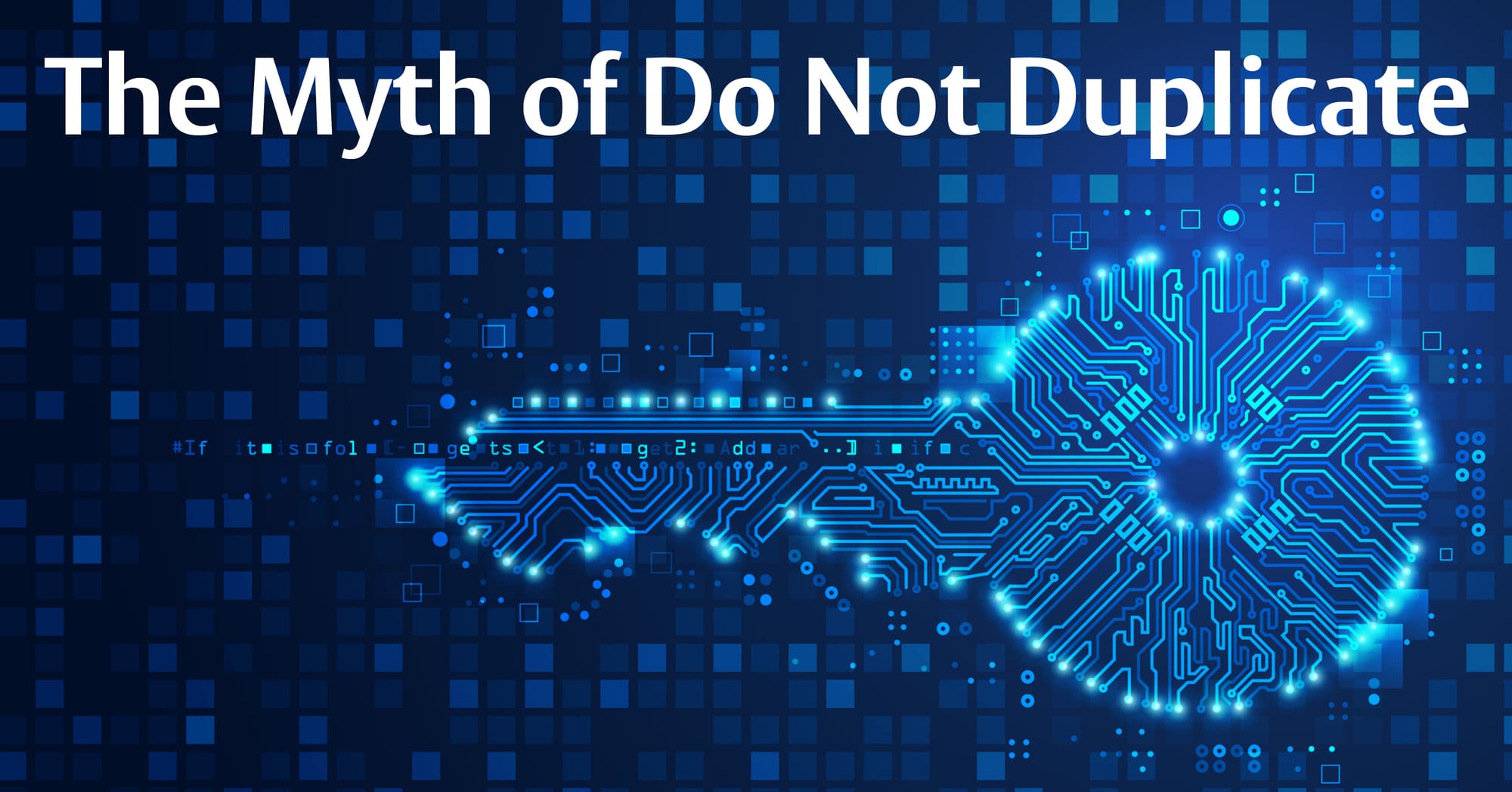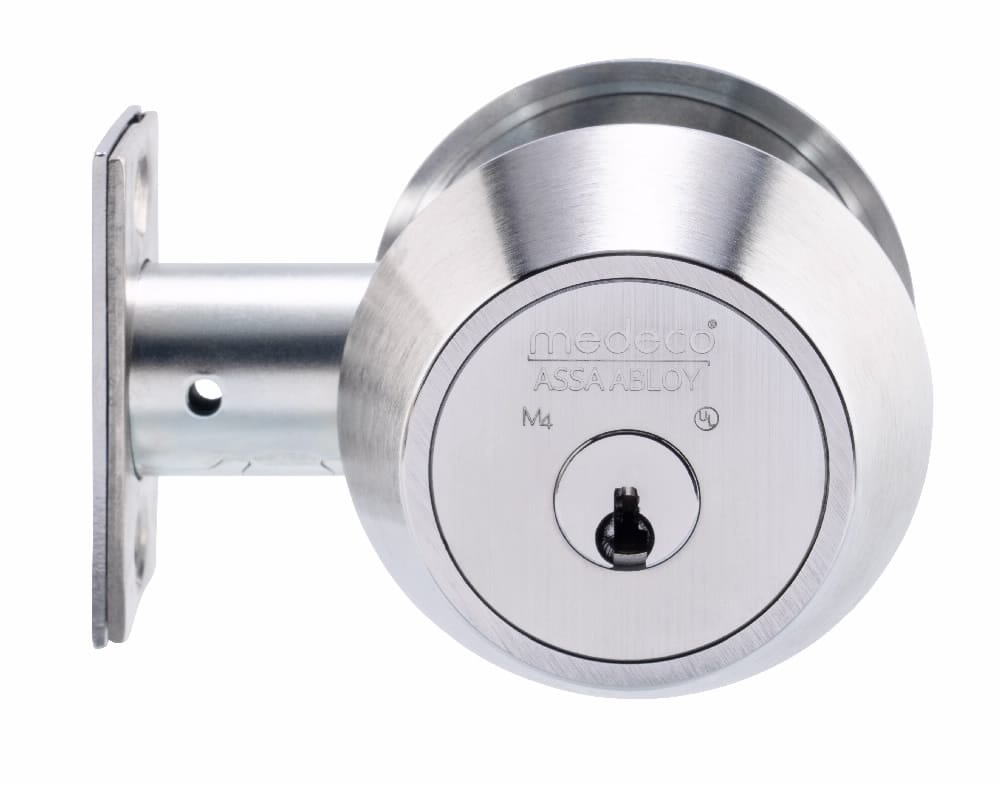The Myth of “Do Not Duplicate”
Did you know that a key printed with “do not duplicate” isn’t legally binding? It can be a surprise to businesses and homeowners that there are no laws that enforce the verbiage.

Did you know that a key printed with “do not duplicate” isn’t legally binding? It can be a surprise to businesses and homeowners that there are no laws that enforce the verbiage. This wording is only an illusion – it has no real authority. Particularly in this era of self-service kiosks, unrestricted keys are a significant security risk that should be avoided at all costs.
The only surefire way to prevent key duplication is to use a patented key system.
Why a “do not duplicate” key is meaningless
For starters, there is no legal weight behind a key marked with “do not duplicate.” There are no criminal statutes or associated penalties behind it. The phrase is like a “property under surveillance” sign without security cameras – it’s nothing more than a visual deterrent without any teeth. Moreover, anyone with a passing knowledge of key hardware already knows this phrase can be ignored.
Without legal consequences, every big box store or chain has its own rules for handling a “do not duplicate” key. The same goes with relying on the discretion of locksmiths. Even if a company has a policy, you are at the mercy of an associate to be trained, take the time to look for the wording, and then decline the request.
Self-service kiosks are also a vulnerability. It’s up to the kiosk maker if they program their machines to reject a “do not duplicate” key – some do, some do not. Those that accept any key are essentially relying on the honor system. It’s not like there is a layer of human invention at checkout to make sure everything is above the board.
If that’s not already worrisome, there are key cloning apps that only need a photograph or scan of an unrestricted key to replicate it. There’s even the possibility someone with a 3D printer could fabricate their own copy. Those spy movie scenes of pressing a key into a mold and making a duplicate aren’t that far from today’s tech reality.
Even if there are ethical stores or key machines, there’s also the possibility that the phrase has worn off. Keys are often in circulation for years on end and subjected to heavy use. Especially if they were hand stamped rather than engraved, it’s quite possible the letters are no longer visible.
What does all of this mean? It is cheap, easy, fast, and perfectly legal to duplicate keys. When you think of everything your access control protects – people, physical assets, mission-critical systems, and intellectual property – there’s simply too much at stake to be vulnerable to key duplication. Unauthorized entry from a duplicated key could have disastrous consequences with long-term ramifications.
How does a patented key system offer greater security?
A patented key is protected by a number of safeguards. First is the patent itself, which is a legal right that makes the design exclusive to the manufacturer for 20 years. Violating a patent can incur fines up to $10,000, which is a significant deterrent.
Having a patent then allows manufacturers to control who has permission to copy their keys. Only vendors with the correct cutting machines or the manufacturer’s own service center are authorized.
Patented keys are also nearly impossible to copy because they have significantly more complex designs. With specialty tools and equipment required, they are too advanced for what a chain retailer or kiosk can mill. Restricted keys can also have moving parts that can’t be replicated by 3D printing even with a scanned outline. Then there’s the fact that restricted keys are only one half of a larger system – the corresponding locking technology is covered by a patent as well.
At the end of the day, the phrase “do not duplicate” is a feel-good stamp that creates a false sense of security. The safest way to prevent duplications is to use a patented key system.
If you’re in need of a key system upgrade, Medeco can help at every step of the process, from design to deployment. Call our office to get started – 1.877.633.3261.

Maxum Deadbolt Sidebar
A patented key and deadbolt combo is a major advantage for multifamily properties. Residents are assured they have additional physical security and property managers can trust that the keys can’t be copied. It also saves the hassle and cost from having to rekey after each tenant – as long as the key is returned, it can be issued to the next renter.
For apartment and condo managers or homeowners looking for a deadbolt, use our deadbolt configurator: https://www.medeco.com/en/support/product-selectors/Medeco-Maxum-Deadbolt-Selector